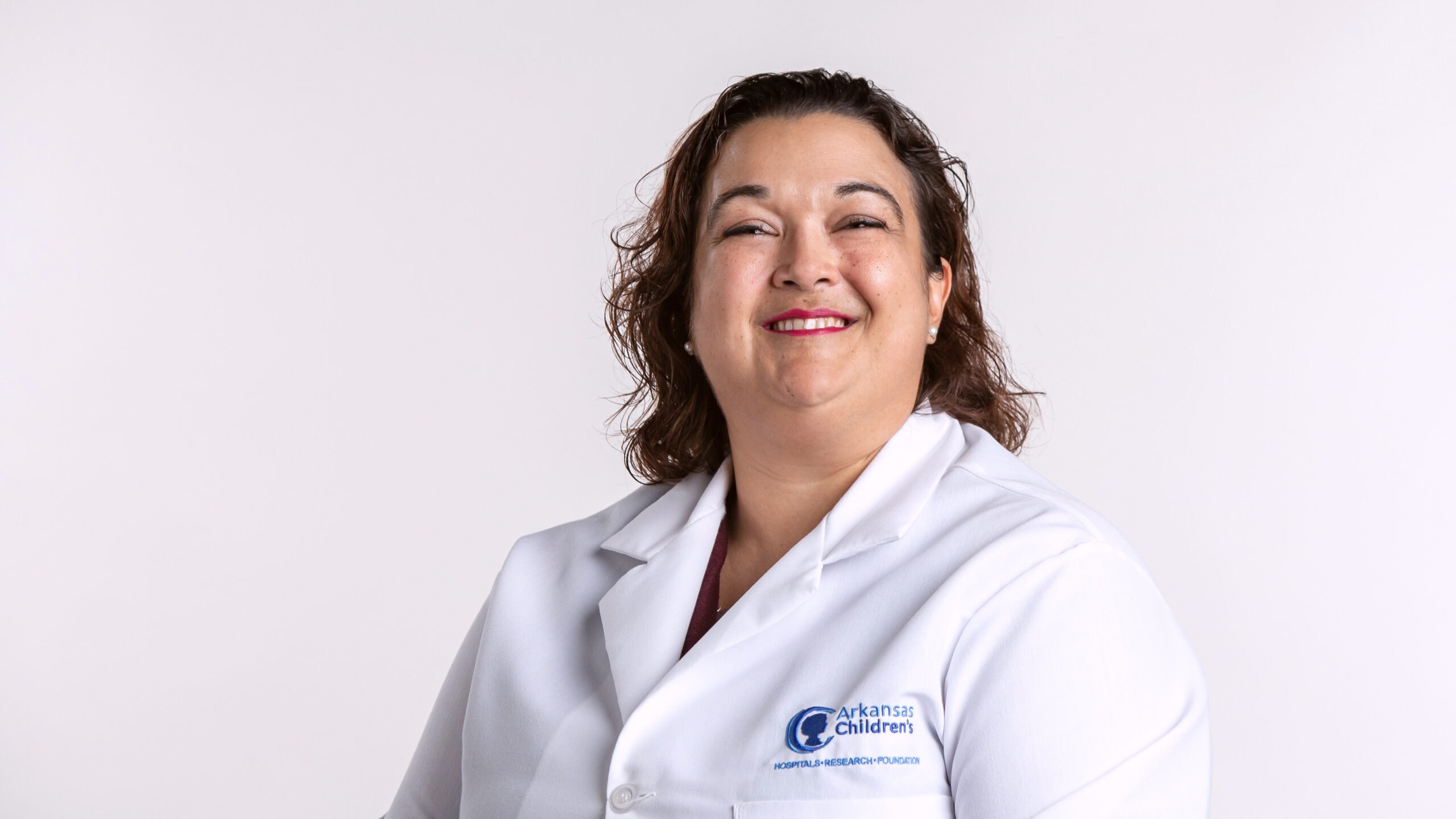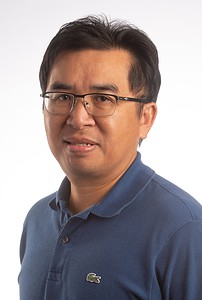UAMS, NIH Study Finds Consoling, Other Techniques Better Than Drug Therapies for Newborns with Opioid Withdrawal
| LITTLE ROCK — A groundbreaking nationwide clinical trial in which the University of Arkansas for Medical Sciences (UAMS) played a key role has confirmed an effective way to wean newborns from opioid withdrawal symptoms that substantially reduces hospital stays and the traditional use of drug therapies.
Using an “Eat, Sleep, Console” (ESC) care approach resulted in infants with neonatal opioid withdrawal syndrome (NOWS) being medically ready for discharge in nearly half the time and less likely to receive drug therapy compared to those receiving more traditional care, according to the National Institutes of Health (NIH)-funded study. The ESC care approach focuses on supporting infants and caregivers in the essential functions of early infant life: eating, sleeping and consoling fussy infants.
The study, published in the New England Journal of Medicine, was the first large-scale effort to compare the two approaches to opioid withdrawal used by hospital nurseries. Symptoms of withdrawal include tremors, excessive crying and irritability, and problems with sleeping and feeding. At least one newborn in the United States is diagnosed every 18 minutes with NOWS.
UAMS played a critical leadership role in this study, as the NIH’s Data Coordinating and Operations Center (DCOC) for the Institutional Development Award (IDeA) States Pediatric Clinical Trials Network (ISPCTN). UAMS led the statistical design, analysis and reporting for the study, served as the central Institutional Review Board for the study, supported the web portal for study resources, and developed communication tools for participants. UAMS also led training for the study at all 26 research hospitals, including more than 5,000 nurses across the country.
Jessica Snowden, M.D., who leads the DCOC along with Song Ounpraseuth, Ph.D., as its principal investigators, said the study’s findings provide the first strong evidence needed to help end hospitals’ widely varying NOWS treatment approaches.
“This study will revolutionize NOWS treatment, safely allowing babies to go home to their families much sooner. I am proud that UAMS has the research expertise to serve such a critical leadership role in this national trial,” said Snowden, who is also vice dean for research in the UAMS College of Medicine, chief of the Division of Pediatric Infectious Diseases, and the Horace C. Cabe Endowed Chair in Pediatric Infectious Disease.
The DCOC provides data coordination, technical instruction, data standards, quality control and assurance, and operational coordination for IDeA States pediatric clinical trials.
The study compared the ESC care approach with the Finnegan Neonatal Abstinence Score Tool (FNAST), a NOWS assessment to determine whether drug therapy is needed for weaning infants from their withdrawal symptoms.
Involving 1,306 newborns, the study found that infants cared for with ESC were medically ready for discharge at 8.4 days, compared to 15 days for those treated using the more common FNAST screening and drug therapy. Infants treated with ESC were also about 66% less likely to receive treatment with opioids. In the ESC group, opioids were used only 17.3% of the time compared with 50.4% in the FNAST group.
The 50-year-old FNAST method measures 21 symptoms frequently seen in opiate-exposed infants. According to the NIH, it can be subjective and may overestimate the need to treat infants with opioid medications (methadone and morphine) to manage their withdrawal. The ESC method determines withdrawal severity based on how well an infant can eat, sleep and be consoled. ESC prioritizes and emphasizes nondrug-based care, including holding, swaddling and rocking in low-stimulus environments as first-line treatment.
ESC also empowers families in the care of their infants through education and shared decision-making, which can build trust and help families feel valued and supported.
Safety outcomes at 3 months of age were similar between both groups. The study team will continue to monitor a subpopulation of infants in both treatment groups through age 2 to evaluate potential effects on infant and family well-being.
The clinical trial is a collaborative effort between NIH’s Eunice Kennedy Shriver National Institute of Child Health and Human Development (NICHD) and the NIH Environmental influences on Child Health Outcomes (ECHO) Program. The trial is funded by the Helping to End Addiction Long-term Initiative, or NIH HEAL Initiative® — a transagency effort to speed scientific solutions to stem the national opioid crisis.

